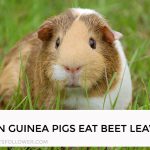
When choosing human food for your guinea pigs, it is important to find the best quality products to keep them happy and healthy. You can find a wide variety of choices, from pet foods to high-end gourmet meals. Here are the best options.
Contents
Vitamin C
When it comes to guinea pig nutrition, it is important to remember that your pets need vitamin C. You can give them a tablet or a liquid supplement. You can also add fresh vegetables.
If you plan to give your guinea pigs a vitamin C tablet, make sure to follow the instructions on the label. For example, some tablets should be crushed and sprinkled over food. Others can be used as treats.
It is also important to make sure you are using a human formula that does not contain added sugar, artificial colors or preservatives. This can affect the way your pet absorbs the vitamin.
Vitamin C deficiency can lead to abnormal bone formation and cartilage. If left untreated, this condition can cause bleeding in the tissues. It can also cause bladder stones to form.
Grass hay
Grass hay is an important part of a cavy’s diet. It helps to keep their bodies ticking over, and is also an excellent source of fibre for digestive health. It’s a modest source of protein and Vitamin C.
Fortunately, it’s easy to get fresh grass for your pigs. You can buy it in bulk or by the bale. The latter is the best option, as it’s more nutritious.
Whether you choose to buy grass or grow it yourself, it’s a good idea to use the right tools. Guinea pigs have sensitive mouths, so you’ll want to pick grass hay that is free of chemical fertilizers and pesticides. This is especially important if you’re using it in an outdoor setting.
While grass hay is the foundation of a cavy’s diet, vegetables should be part of a guinea pig’s daily rations. A good way to start is by offering two or three types of different vegetables daily.
Timothy pellets
Guinea pigs can eat human food as treats, and can also be offered a variety of fresh vegetables and fruits. However, if you are planning on giving them human foods, you should ensure that they get a wide range of vitamins and minerals.
Among the most important nutrients a guinea pig needs is vitamin C. Unlike humans, guinea pigs cannot synthesize their own vitamin C, which means that they have to rely on their diet. If they don’t get the vitamin they need, they may develop a disease called scurvy.
In order to ensure that your guinea pig gets the proper amount of vitamin C, you should look for a pellet that contains the vitamin. In most cases, you should choose one that is made from timothy hay.
Green vegetables
It is important to give your guinea pig a variety of fresh green vegetables to keep them healthy. These are an excellent source of vitamins, minerals, and antioxidants. These foods can help your guinea pig fight off chronic diseases, such as cancer, diabetes, and heart failure.
When you give your guinea pig fruits and veggies, it is a good idea to choose ones with high levels of vitamin C. This can help prevent digestive issues and ensure the health of your piggies.
Greens and leafy vegetables should make up the majority of your guinea pig’s diet. Guinea pigs do well with carrots and spinach. These foods are high in fiber, calcium, and vitamin C. However, they can cause gas, diarrhea, or constipation if given too much.
Herbs
Herbs are a great treat for guinea pigs. However, it is important to know which herbs are safe to feed them.
Some herbs are poisonous. If you don’t know the right herbs to feed your guinea pig, you could end up causing health problems. Aside from that, herbs also provide your pet with useful vitamins.
Basil, for instance, is a good option for guinea pigs. It contains antioxidants which can help in preventing cancer and aging. The vitamin C in the herb is also essential for a healthy immune system.
Coriander is also a safe herb for guinea pigs. Like other herbs, it is good for piggies in small quantities. It helps in strengthening the bones and muscles of your piggies. It also contains sufficient amounts of calcium.

